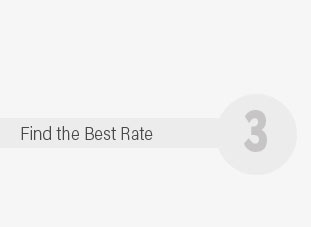 |
 |
 |
|---|
 |
 |
 |
 |
|---|
 |
 |
 |
 |
 |
 |
|---|

Exploring the Cost of Short Term Car Insurance: A Comprehensive GuideIn today's fast-paced world, flexibility is key, and this is particularly true when it comes to car insurance. Short term car insurance, often referred to as temporary car insurance, is an option that provides coverage for a limited period, typically ranging from a single day to several months. This type of insurance is ideal for a variety of situations, such as borrowing a friend’s car, renting a vehicle for a brief trip, or covering a gap between long-term policies. The question then arises: what is the cost of short term car insurance, and how does it compare to traditional long-term policies? First and foremost, it's important to understand that short term car insurance is generally more expensive on a per-day basis than standard annual policies. This higher cost can be attributed to the flexibility and convenience it offers, allowing you to tailor the coverage period to your specific needs without committing to a year-long plan. However, when utilized correctly, short term insurance can be an economical solution. Let's delve into some key factors that influence its cost. One of the primary determinants of cost is coverage level. Like traditional insurance, short term policies offer various levels of coverage, from basic liability to comprehensive plans that cover theft, fire, and accidental damage. Naturally, the more extensive the coverage, the higher the premium. Moreover, your driving history plays a crucial role; a clean record will likely result in lower costs, while past infractions could increase your premium.
When considering short term car insurance, it's wise to compare various providers and their offerings. Many insurance companies have entered the temporary insurance market, each with its own pricing model and coverage options. Some popular providers include Geico, State Farm, and Progressive, each offering unique packages that cater to different needs. While comparing, be sure to look for any additional fees that might not be immediately apparent, such as administrative costs or penalties for early cancellation. In conclusion, while short term car insurance may appear costly when viewed solely through the lens of daily rates, its true value lies in its adaptability and convenience. It allows drivers to pay only for what they need, when they need it, without the long-term commitment. By carefully assessing your specific requirements and comparing offerings from multiple providers, you can find a temporary car insurance plan that strikes the perfect balance between cost and coverage, ensuring peace of mind without unnecessary expenditure. https://www.bankrate.com/insurance/car/temporary-car-insurance-california/
Some car insurance companies offer short-term auto insurance solutions for stored vehicles. If your car is not being used for more than one ... https://www.insuranceopedia.com/auto-insurance/temporary-car-insurance-california
Young drivers who are looking for short-term insurance should consider Progressive. Progressive offers the most affordable rates for drivers ... https://www.thezebra.com/auto-insurance/california-car-insurance/temporary-car-insurance/
The most budget-friendly option for temporary auto insurance in California is Esurance, which can save you $14 per month, compared to the next cheapest option, ...
|
|---|